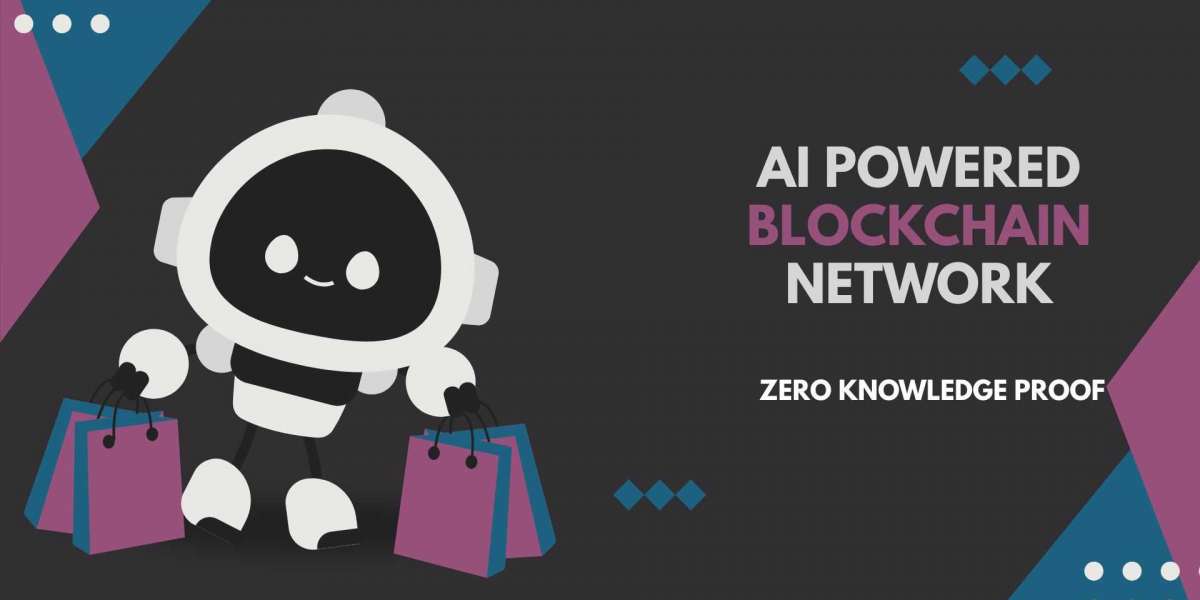When combined, they form what many are calling a self-proving network—a decentralized ecosystem capable of verifying itself, learning from its data, and operating without human intervention. This next-generation infrastructure promises not only efficiency but also integrity, enabling a digital world where privacy and truth coexist.
From Verification to Self-Verification
Traditional blockchain systems rely on consensus mechanisms to validate transactions across a distributed network. While this ensures transparency and security, it often comes with challenges such as scalability, energy consumption, and limited privacy. AI introduces a new dimension by allowing networks to analyze patterns, optimize performance, and even predict fraudulent behavior before it happens. When zero knowledge proof cryptography is layered on top, the blockchain evolves into something more powerful—an intelligent, self-proving network.
In this new model, every transaction or computation can be verified without exposing private information. The system doesn’t just record data; it understands and proves it in real time. ZKP ensures that participants can confirm the validity of transactions without revealing sensitive details, while AI continuously enhances the system’s accuracy and adaptability. The result is a blockchain that is both verifiable and self-sustaining—a trustless environment where truth is established through computation rather than assumption.
The Role of Zero Knowledge Proof: Privacy Meets Proof
At the core of this transformation lies the zero knowledge proof, a cryptographic protocol that allows one party to prove knowledge of a fact without disclosing the fact itself. In blockchain systems, ZKPs are used to validate transactions privately, ensuring that the integrity of the network is preserved without compromising user confidentiality.
This technology redefines the concept of verification. Instead of broadcasting every detail to all participants, the network relies on mathematical proofs that confirm validity. This approach drastically enhances scalability and privacy while maintaining transparency. For example, users can prove ownership of an asset or compliance with certain conditions without revealing their identity or the data behind it.
When integrated into AI-driven systems, zero knowledge proof mechanisms enable privacy-preserving computation. AI models can process encrypted data and verify their outputs through ZKPs, ensuring that learning and reasoning occur securely. This is particularly important for applications involving personal data, such as finance, healthcare, or identity systems, where both accuracy and privacy are non-negotiable.
AI: The Cognitive Engine of the Blockchain
Artificial Intelligence brings cognition to the blockchain—an ability to analyze, learn, and optimize without central control. Traditional blockchains are deterministic systems that record data immutably but lack interpretive intelligence. By embedding AI, blockchains gain the power to evaluate data trends, detect anomalies, and predict outcomes.
In a self-proving network, AI functions as the decision-making layer. It can analyze transaction histories, network activity, and user behavior to optimize consensus algorithms, improve scalability, and reduce redundancy. AI models trained within this environment can autonomously detect malicious activity or inefficiencies and correct them without human input.
However, AI’s reliance on data creates a privacy paradox. To learn effectively, it needs access to large datasets—many of which contain sensitive or personal information. This is where ZKP technology becomes essential. It allows AI to process data in a privacy-preserving manner, proving the correctness of its outputs without revealing underlying information. The combination ensures that the blockchain remains both intelligent and confidential, merging computational reasoning with cryptographic trust.
The Architecture of a Self-Proving Network
A self-proving network is built upon three interdependent layers: computation, verification, and intelligence.
Computation Layer: This is where transactions, smart contracts, and AI models operate. Data is processed locally or across nodes in a decentralized fashion.
Verification Layer: Powered by zero knowledge proof, this layer ensures that every computation is verifiable. It confirms that operations follow agreed rules without exposing private details.
Intelligence Layer: Managed by AI, this layer monitors system behavior, predicts network needs, and enhances efficiency. It continuously learns from verified data to improve scalability, resource allocation, and decision-making.
Together, these layers form a self-reinforcing loop of trust. AI-driven insights enhance blockchain efficiency, ZKP ensures privacy and correctness, and blockchain immutability secures every interaction. The result is a network that verifies itself—a self-proving system that operates autonomously and transparently.
Real-World Implications of Self-Proving Systems
The convergence of AI, blockchain, and ZKP has far-reaching implications across industries. In finance, it can create trustless environments where transactions are private yet fully auditable. In healthcare, AI can analyze encrypted medical records without revealing patient data, while zero knowledge proof guarantees the validity of results. In supply chains, self-proving systems can ensure product authenticity and ethical sourcing without exposing sensitive logistics data.
Beyond industries, this convergence reshapes how society views digital trust. Instead of relying on centralized authorities or manual verification, users can depend on cryptographic and intelligent systems that verify themselves in real time. The verifiable truth becomes programmable—a fundamental building block of the next-generation internet.
The Future of the AI-Driven Blockchain
The self-proving network represents the natural evolution of decentralized technology. As AI and ZKP continue to advance, blockchains will become more autonomous, efficient, and private. These systems will no longer need constant human oversight; instead, they will self-regulate, self-optimize, and self-prove.
However, this transformation also raises important questions about governance, ethics, and control. As machines begin to verify and learn independently, ensuring fairness, accountability, and transparency in their decision-making will be essential. The goal is not to replace human judgment but to enhance it—creating systems that are verifiable by design and trustworthy by nature.
In the coming years, the integration of zero knowledge proof and AI into blockchain networks will shape the foundation of a truly verifiable digital civilization. The self-proving network will stand as a testament to technological maturity—a world where intelligence, privacy, and truth converge to power a new era of trustless innovation.














